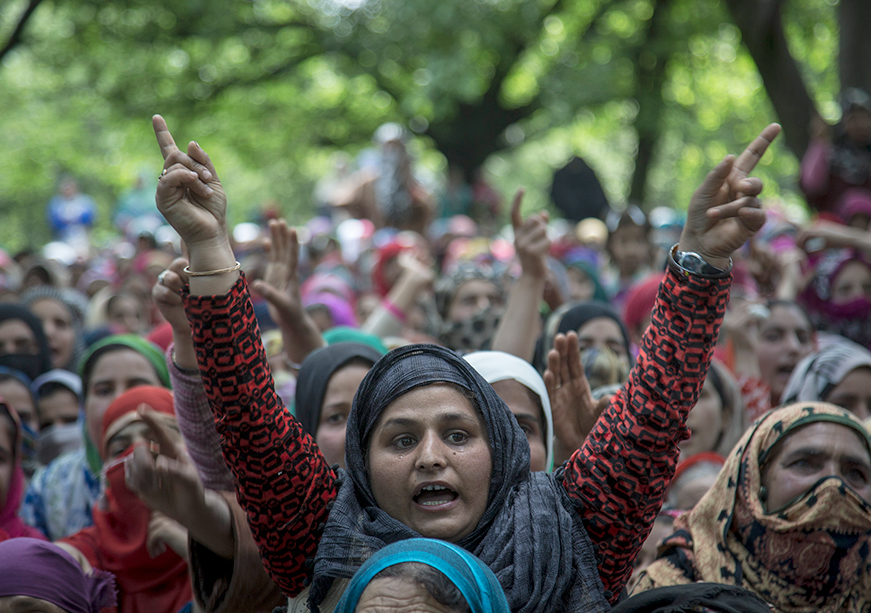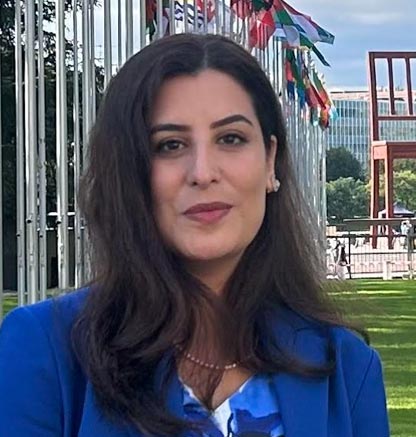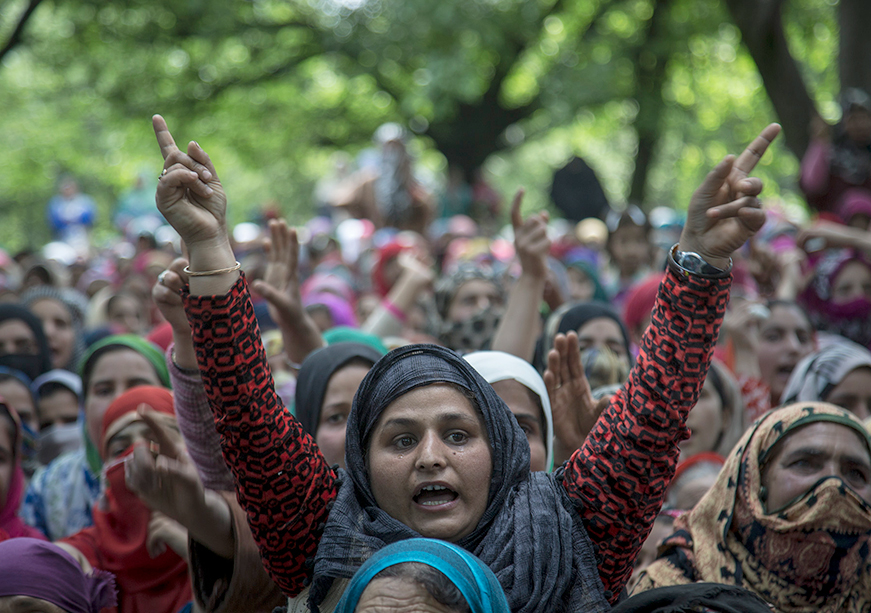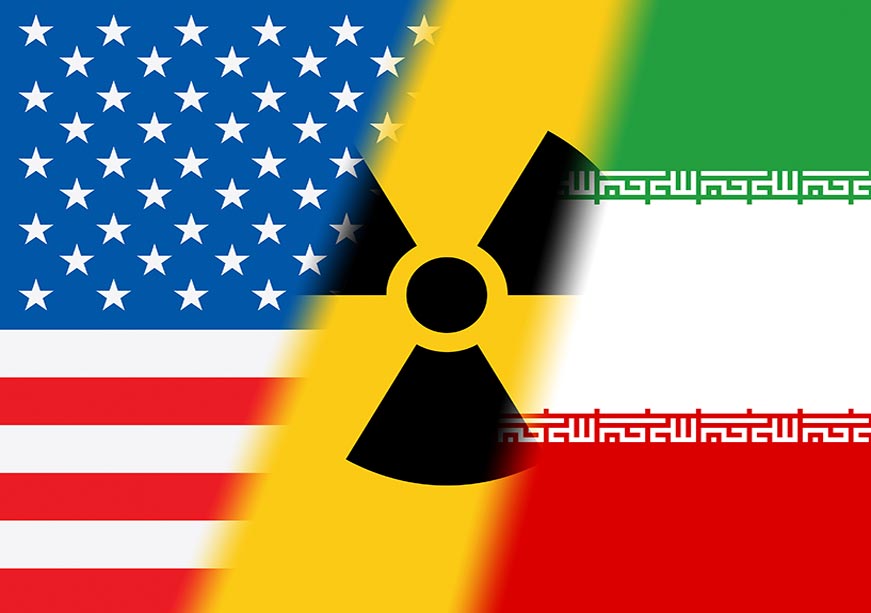
Image Source: Getty
For too long, International Relations (IR) has been shaped by the pillars of state sovereignty, military might, and economic dominance, often sidelining the nuanced, gendered dimensions of conflict. Women, particularly those from vulnerable communities, have largely remained invisible in discussions of peace, diplomacy, and security. Feminist international relations (Feminist IR) challenges this narrow viewpoint by asserting that security cannot be solely defined by military power and territorial control. It calls for a reimagining of security, one that prioritises equality, justice, and human well-being, while elevating the often-overlooked voices of women caught in conflict zones. In 2014, Sweden pioneered the implementation of a feminist foreign policy; numerous nations—including Argentina, Canada, Chile, Colombia, France, Germany, Libya, Luxembourg, Mexico, the Netherlands, Scotland, Spain, and Slovenia—have incorporated gender-sensitive approaches into their diplomatic and international policy agendas. The inclusion of both Latin American and African countries in this group demonstrates that feminist foreign policy (FFP) is no longer a phenomenon unique to the Global North. However, some still worry that such policies could reinforce dominant global hierarchies. The Indian External Affairs Minister, Dr S Jaishankar in August 2021 acknowledged the necessity of a “gender-balanced” foreign policy and stated, “I agree that we need to look at the world from the perspective of women, we need a gender-balanced foreign policy”. India's G20 presidency in 2023 served as a pivotal moment, redefining the landscape of gender-focused policymaking and advancing a more inclusive approach to global governance.
The inclusion of both Latin American and African countries in this group demonstrates that feminist foreign policy (FFP) is no longer a phenomenon unique to the Global North.
At the heart of feminist IR is the belief that women’s roles in global politics extend far beyond the confines of the private sphere; they are essential to the public and political realms as well. Feminist IR insists that peace and security are not simply the cessation of hostilities but encompass a broader vision of justice—one that dismantles systemic inequalities and tackles the social and economic forces that perpetuate conflict. By infusing gender into the analysis of power, security, and diplomacy, feminist IR advocates for the inclusion of women’s voices in decision-making, particularly in areas like peacebuilding and post-conflict recovery. Feminist foreign policy, a direct extension of this framework, proposes a foreign policy that centres on human rights, gender justice, and the active participation of women—especially in conflict-ridden regions like South Asia. India defended its decision not to ratify the Women’s Peace and Security Agenda, arguing that it was “not relevant to the country's context,” despite the presence of several militarised regions still grappling with internal conflicts. In this scenario, United Nations Security Council Resolution 1325 plays a vital role in FFP and its relevance to conflicted regions and post-conflict recovery. While India is gaining traction on UN platforms and globally, we can think of how these approaches align with international commitments while addressing local challenges.
Kashmir: A Case Study
In the case of Kashmir, a region scarred by decades of violent conflict, FFP presents a transformative pathway. The conflict in Kashmir is not just about territorial disputes or sovereignty; there is a huge involvement of cross-country stakeholders as well. It is a humanitarian crisis that disproportionately burdens women.
The Kashmir conflict has left deep scars, particularly among women, who have borne the brunt of violence and militarisation. Women in Kashmir have faced sexual violence and torture, while also contending with the crushing pressures of a patriarchal society that stifles their agency. Sexual violence in conflict is more than just a by-product of war; it is a calculated weapon, used to break the spirit of the entire community. The displacement caused by the ongoing conflict only deepens the challenges. Many families have been forced from their homes, and driven into refugee camps where women find themselves at even greater risk of violence. Stripped of their homes, livelihoods, and security, women often find themselves shouldering the responsibility of keeping families together and maintaining some semblance of normalcy amidst the chaos. However, the patriarchal structures of Kashmiri society offer little support to women in these roles, further marginalising them and preventing their full participation in the political and social rebuilding of their communities. Despite these formidable obstacles, Kashmiri women have displayed extraordinary resilience, organizing grassroots movements, raising their voices against injustice, and demanding peace and justice.
Women in Kashmir have faced sexual violence and torture, while also contending with the crushing pressures of a patriarchal society that stifles their agency.
FFP calls for the recognition of women as central players in peacebuilding and conflict resolution, yet in Kashmir, women have long been excluded from formal peace processes and negotiations. Their absence in these crucial spaces represents a significant gap, as their lived experiences offer valuable insights into the root causes of the conflict and the types of solutions that might lead to lasting peace.
Moreover, feminist foreign policy urges structural reforms that go beyond simply halting hostilities. The international community’s focus on territorial disputes and military interventions often neglects the social and economic inequalities that perpetuate violence in conflict zones. FFP asserts that peace is not merely the absence of violence but the presence of justice, equality, and human security. For Kashmiri women, this means more than just the end of violence; it calls for a comprehensive framework for rebuilding their communities. This includes addressing the trauma of sexual violence, ensuring legal recourse for victims, and providing access to economic opportunities, education, and healthcare—fundamental elements of a peaceful, stable, and just society.
Way Forward
In South Asia, where conflicts are rooted in a complex web of historical grievances, territorial disputes, and deeply entrenched patriarchal norms, such an approach offers a visionary alternative. The region’s ongoing conflicts, from Kashmir to Afghanistan and Sri Lanka, have been marked by widespread gender-based violence, displacement, and the exclusion of women from peace processes. FFP offers a new paradigm—one that acknowledges the intricate intersections of gender, power, and conflict.
By incorporating gender perspectives into diplomatic and security strategies, India can contribute to more sustainable peace.
For India, the focus should be on developing a National Action Plan (NAP) on WPS which would serve as a crucial step for institutionalizing FFP and gender-sensitive IR. Particularly in regions like Kashmir, where post-conflict recovery is essential, adopting such plans would mean ensuring that women are included in peace talks. It would also urge the international community to invest in women’s economic and social empowerment, ensuring they have the tools and opportunities to rebuild their lives and contribute to the reconstruction of their communities.
Additionally, strengthening bilateral and regional diplomatic engagements with an emphasis on gender justice and conflict resolution would enhance India’s role as a global advocate for inclusive security frameworks. By incorporating gender perspectives into diplomatic and security strategies, India can contribute to more sustainable peace.
FFP is not a theoretical abstraction but a practical framework for change. It is an approach to international relations that understands the interconnectedness of gender, power, and security and insists that true, lasting peace can only be achieved when all members of society—especially women—are given the tools, space, and voice to shape their futures. For Kashmiri women, this approach offers the promise of a future in which they are not just survivors of violence but active participants in creating a just, peaceful, and equitable society. It is high time for the international community to heed their calls for justice and peace, placing FFP at the heart of efforts to find lasting solutions to the conflict in Kashmir and beyond.
Tehmeena Rizvi is a Senior Fellow at Bluekraft Digital Foundation and a PhD scholar at Bennett University (Times Group).
The views expressed above belong to the author(s). ORF research and analyses now available on Telegram! Click here to access our curated content — blogs, longforms and interviews.




 PREV
PREV


